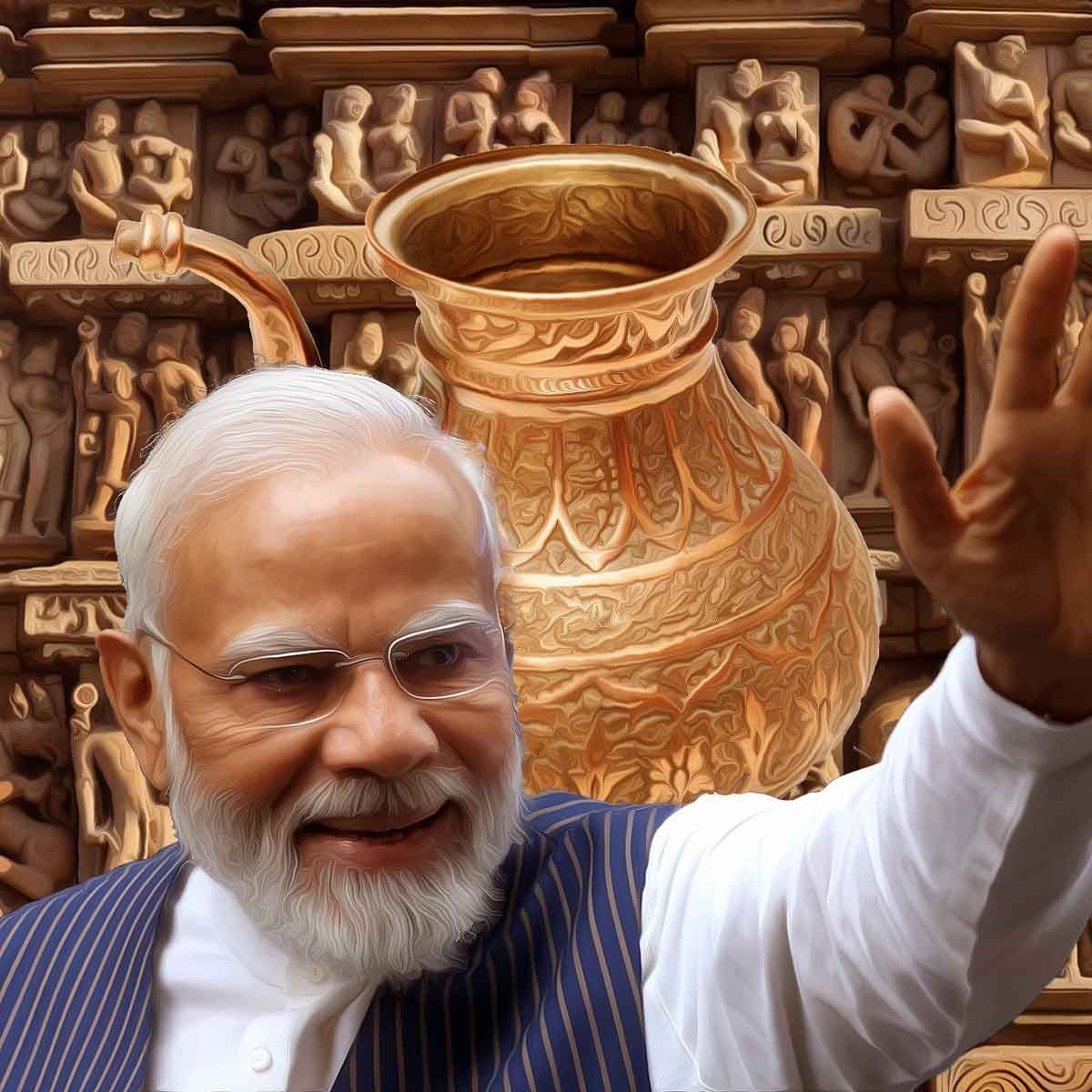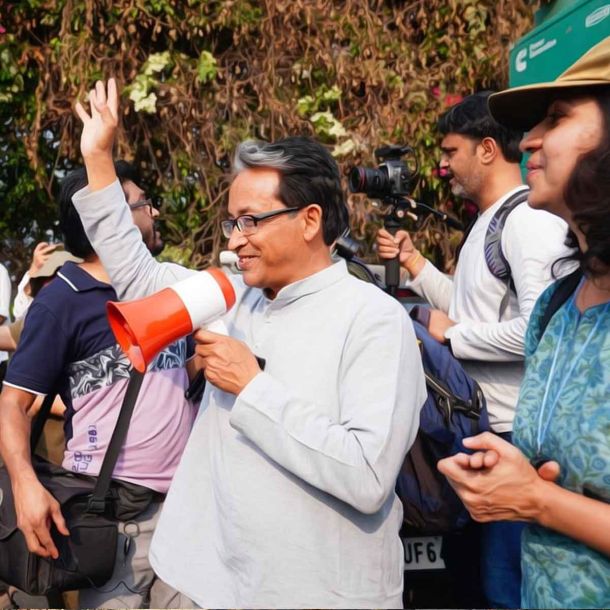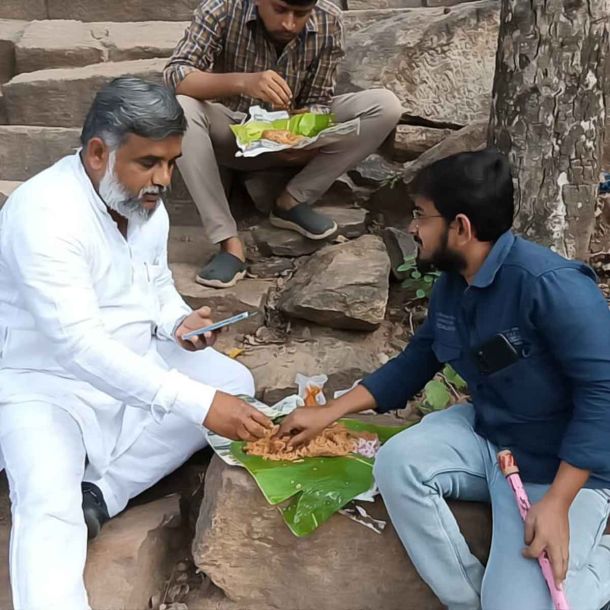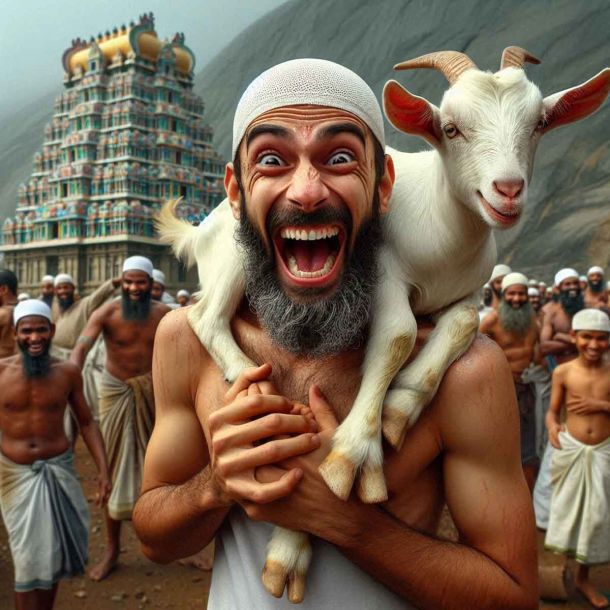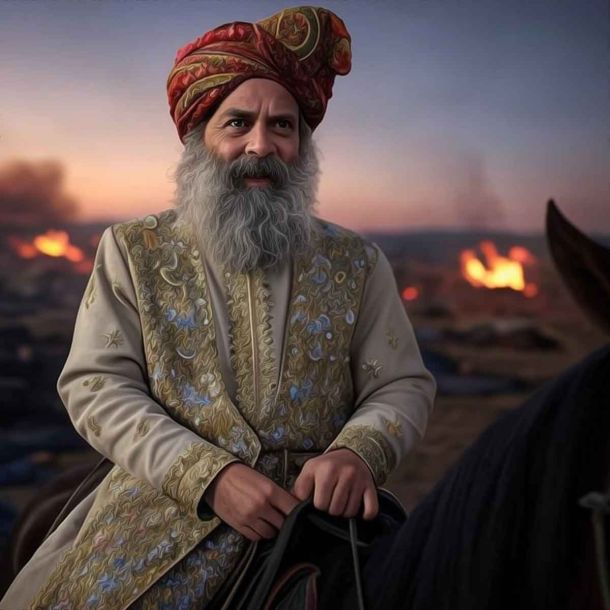MORE COVERAGE
Twitter Coverage
Satyaagrah
Written on
Satyaagrah
Written on
Satyaagrah
Written on
Satyaagrah
Written on
Satyaagrah
Written on
JOIN SATYAAGRAH SOCIAL MEDIA
Girl students wear saffron shawls, chant Jai Shri Ram to protest against hijab in Karnataka: What Ambedkar meant about Women in Islamic Veil by saying, ‘One of the most hideous sights one can witness in India’
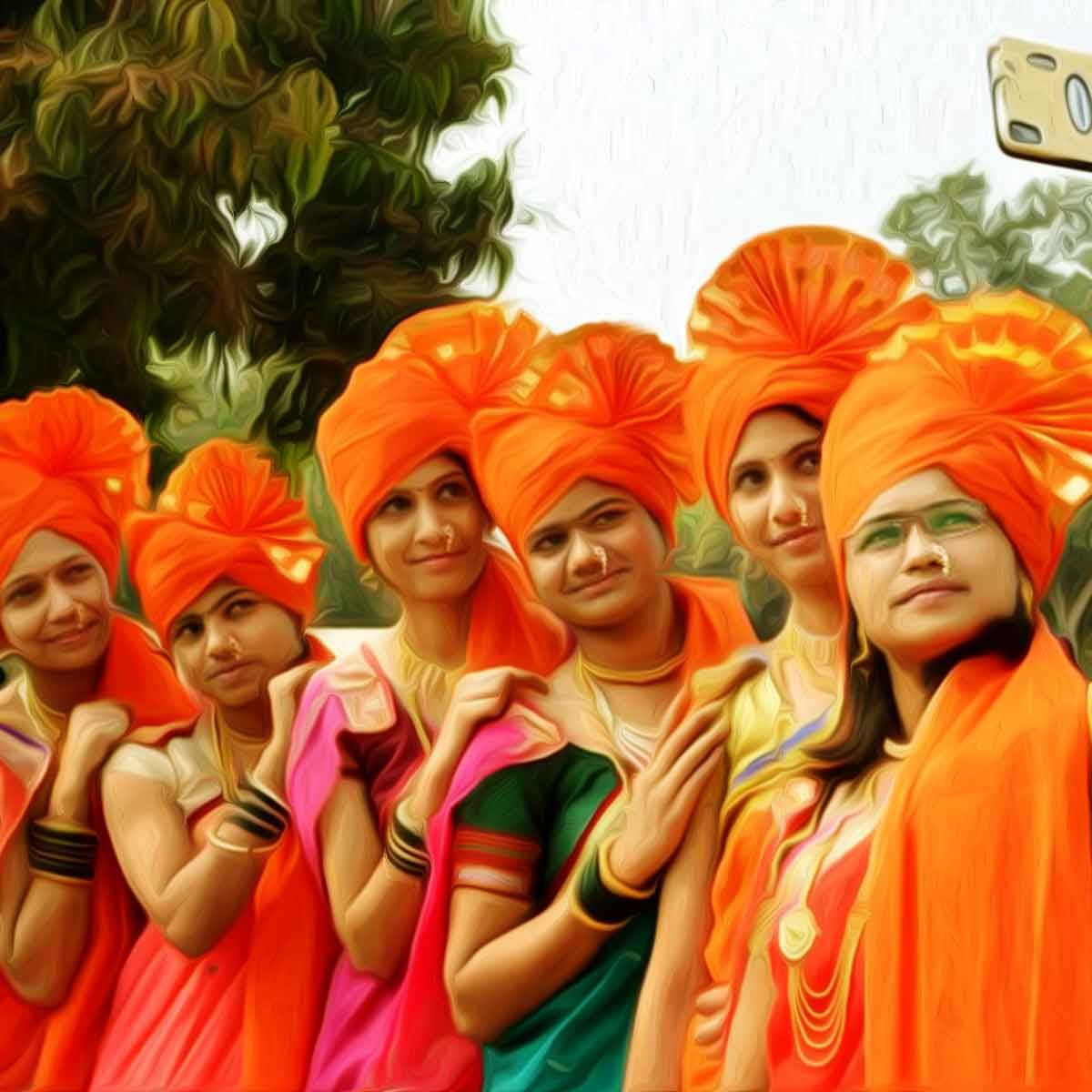
Days after Hindu boys wore saffron shawls in response to the Muslim girl students violating the uniform rules and regulations by wearing hijab, the girl students of the college took to the streets of Kundapur, Udupi by wearing saffron shawls.
The uniform regulations in educational institutions have taken a dangerous turn in Karnataka after a few Muslim students refused to follow the guidelines and insisted that they want to wear hijabs inside educational institutions.
In response, boy students had decided to wear the saffron shawls prompting the authorities to ban both outfits. However, the Muslim students have brazened it out to protest against the authorities outside, risking the future of several other students studying in the school.
On Saturday, in solidarity with their classmates, girl students also hit the streets by wearing saffron shawls to protest against the attempts of Muslim students to vilify the secular atmosphere in the college by deliberately violating the rules and regulations.
 |
Several videos have now gone viral in which girl students adorning saffron shawls took a march to protest against hijabs. In addition, they chanted Jai Shri Ram slogans to show support to their fellow students who were not allowed to enter campus for wearing saffron shawls on Friday.
|
A Hindu student protesting said that they would also wear Saffron shawls if the authorities allowed Muslim students to wear Islamic attires of hijab or burqa. “There has to be only one rule on the uniform,” said the student.
|
Not just in Kundapura, Hindu students from various parts of the state have also joined students from coastal Karnataka. Videos have gone viral in which it was seen that many students from across the state are wearing saffron scarves around their necks to protest against Muslim girls continuing to wear Hijab to the college.
In the districts of Belgavi and Hassan, students were seen wearing saffron shawls.
|
|
Similarly, in Chickamagalur, students also wore saffron shawls to protest against the Hijab controversy.
|
Meanwhile, the Karnataka High Court has agreed to hear a plea arguing that Muslim women wearing Hijab should be permitted to attend classes. A Muslim student has filed a petition in the Karnataka High Court, asking for a direction to allow wearing a hijab in college, stating that it is her “Fundamental Right” granted under Article 14 and 25 of the Indian Constitution and “integral practice of Islam”.
The Karnataka government has stated that religious attires are not allowed inside campus and students will have to obey uniform rules. However, some Muslim students have been protesting outside the gates, demanding the right to wear hijabs. As usual, the so-called ‘secular-liberal’ politicians are supporting the Islamic regressive practice and have been stating that the schools and colleges should relax their rules for Islamic practices.
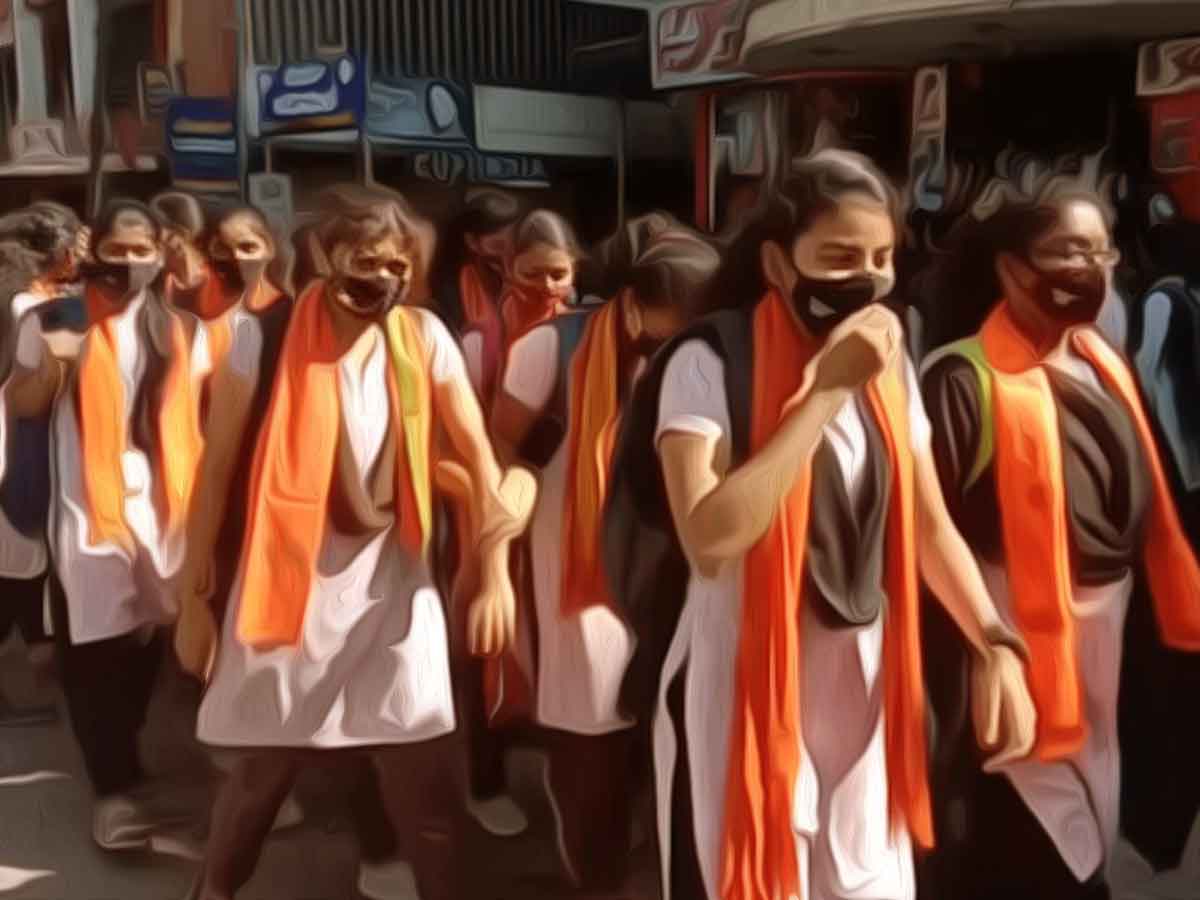 |
What Ambedkar said about Women in Islamic Veil
BR Ambedkar in his 1945 book ‘Pakistan or the Partition of India’ wrote:
The evil consequences of purdah are not confined to the Muslim community only. It is responsible for the social segregation of Hindus from Muslims which is the bane of public life in India.
But the Hindus are right when they say that it is not possible to establish social contact between Hindus and Muslims because such contact can only mean contact between women from one side and men from the other.
For a month now, young women in some pre-university colleges (Class11-12) in Karnataka have been protesting against administration rules prohibiting them from wearing veils to the campus.
The protests began in December when eight girls in an all-women pre-university college began to sports hijab and were denied entry into the campus by the administration. The girls defended their actions by arguing that they had only recently discovered that the institute had no stated rule against the hijab. They said they wanted to wear a hijab as the institute has male teachers.
The protest soon spread to other colleges in the state. As per reports, at least five educational institutes in Karnataka are demonstrating pro-hijab protests now.
Protesters are calling the hijab (veil that covers the head and neck but allows sight of the face) and burqa (full-body veil barring the eyes) symbols of their Islamic faith. They say they are protesting for their right to wear the veil for, to them, it means a right to practice their religion.
At least one college has arranged for a separate room for women to keep their veils and attend classes in normal clothes, but students insist they wish to wear it at all times.
In a country that has been witnessing Hindu-Muslim conflict for centuries, which has not ceased to exist despite a bloodied partition in 1947 on religious lines, the controversy in Karnataka has triggered yet another confrontation between Hindus and Muslims.
Hindu students at these colleges – both men and women - have begun to sport saffron stoles as a mark of protest against any concession given solely to Muslim students. This competitive religiosity on campus has prompted college administrations to say that no overt display of religion would be tolerated at the campus.
The ongoing conflict could well be a case study in BR Ambedkar’s 1945 book ‘Pakistan or the Partition of India’, where he advocated the creation of Pakistan and a total transfer of the Muslim population to Pakistan.
 |
Citing several communal clashes and confrontations between the Hindu and Muslim communities, Ambedkar argued that an India with no solution to the Hindu-Muslim problem will lead to social stagnation. He wrote:
..So long as one community looks upon the other as a menace there will be no social progress and the spirit of conservatism will continue to dominate the thoughts and actions of both.
Ambedkar said that this “menace” is sure to last “as long as the Hindus and Muslims are required to live as members of one country under the mantle of a single constitution”.
Indeed, it is the conservative section of the Muslim society backing and fuelling the pro-burqa demands.
The Campus Front of India, a student group that traces its roots to the militant Students Islamic Movement of India (SIMI), is at the forefront of leading the protests even as progressive Muslim voices on social media are decrying the protests, calling the veil a “medieval symbol of backwardness, disempowerment, and patriarchy”.
It is interesting here, to recall Ambedkar’s take on the veil.
While radical Islamic groups including the Campus Front of India often attempt to club the struggles of the Hindu Dalit community in their religious mission, in the pretext of forming a common front against “saffronisation”, the Dalit icon called burqa-donning women “one of the most hideous sights one can witness in India”.
This is what Ambedkar wrote (Pakistan or the Partition of India):
On social evils, where Ambedkar questioned the propaganda that Muslims in India were a progressive people compared to Hindus
The social evils which characterize the Hindu Society, have been well known. The publication of Mother India by Miss Mayo gave these evils the widest publicity. But while Mother India served the purpose of exposing the evils and calling their authors at the bar of the world to answer for their sins, it created the unfortunate impression throughout the world that while the Hindus were grovelling in the mud of these social evils and were conservative, the Muslims in India were free from them, and as compared to the Hindus, were a progressive people. That, such an impression should prevail, is surprising to those who know the Muslim Society in India at close quarters. One may well ask if there is any social evil that is found among the Hindus and is not found among the Muslims?
On purdah or veil among Muslim women
There can thus be no manner of doubt that the Muslim Society in India is afflicted by the same social evils as afflict the Hindu Society. Indeed, the Muslims have all the social evils of the Hindus and something more. That something more is the compulsory system of purdah for Muslim women. As a consequence of the purdah system, segregation of Muslim women is brought about...These burka women walking in the streets are one of the most hideous sights one can witness in India. Such seclusion cannot but have its deteriorating effects upon the physical constitution of Muslim women. They are usually victims of anemia, tuberculosis, and pyorrhoea. Their bodies are deformed, with their backs bent, bones protruded, hands and feet crooked. Ribs, joints, and nearly all their bones ache. Heart palpitation is very often present in them. The result of this pelvic deformity is untimely death at the time of delivery. Purdah deprives Muslim women of mental and moral nourishment. Being deprived of healthy social life, the process of moral degeneration must and does set in. Being completely secluded from the outer world, they engage their minds in petty family quarrels with the result that they become narrow and restricted in their outlook. They lag behind their sisters from other communities, cannot take part in any outdoor activity, and are weighed down by a slavish mentality and an inferiority complex. They have no desire for knowledge because they are taught not to be interested in anything outside the four walls of the house. Purdah women in particular become helpless, timid, and unfit for any fight in life. Considering a large number of purdah women among Muslims in India, one can easily understand the vastness and seriousness of the problem of purdah.
 |
On the religious sanction to the veil in Islam compared to Hindu religions
The evil consequences of purdah are not confined to the Muslim community only. It is responsible for the social segregation of Hindus from Muslims which is the bane of public life in India. This argument may appear far-fetched and one is inclined to attribute this segregation to the unsociability of the Hindus rather than to purdah among the Muslims. But the Hindus are right when they say that it is not possible to establish social contact between Hindus and Muslims because such contact can only mean contact between women from one side and men from the other. Not that purdah and the evils consequent thereon are not to be found among certain sections of the Hindus in certain parts of the country. But the point of distinction is that among the Muslims, purdah has a religious sanctity that it has not with the Hindus. Purdah has deeper roots among the Muslims than it has among the Hindus and can only be removed by facing the inevitable conflict between religious injunctions and social needs. The problem of purdah is a real problem with the Muslims—apart from its origin—which it is not with the Hindus. Of any attempt by the Muslims to do away with it, there is no evidence.
More than 75 years later, these writings by Ambedkar are as relevant as they were when they were originally written in the run-up to the partition.
The ongoing movement in support of the veil is an Islamic movement that is only exposing the centuries-old fissures between the Hindu and Muslim communities in India.
To the women and other marginalized sections, a conservative movement such as this does no good. As Ambedkar had warned, it’s a manifestation of social stagnation.
References:
 Support Us
Support Us
Satyagraha was born from the heart of our land, with an undying aim to unveil the true essence of Bharat. It seeks to illuminate the hidden tales of our valiant freedom fighters and the rich chronicles that haven't yet sung their complete melody in the mainstream.
While platforms like NDTV and 'The Wire' effortlessly garner funds under the banner of safeguarding democracy, we at Satyagraha walk a different path. Our strength and resonance come from you. In this journey to weave a stronger Bharat, every little contribution amplifies our voice. Let's come together, contribute as you can, and champion the true spirit of our nation.
 |  |  |
| ICICI Bank of Satyaagrah | Razorpay Bank of Satyaagrah | PayPal Bank of Satyaagrah - For International Payments |
If all above doesn't work, then try the LINK below:
Please share the article on other platforms
DISCLAIMER: The author is solely responsible for the views expressed in this article. The author carries the responsibility for citing and/or licensing of images utilized within the text. The website also frequently uses non-commercial images for representational purposes only in line with the article. We are not responsible for the authenticity of such images. If some images have a copyright issue, we request the person/entity to contact us at satyaagrahindia@gmail.com and we will take the necessary actions to resolve the issue.
Related Articles
- Just a few months before the raging Hijab controversy, Muslim residents of Udupi had boycotted local fishermen for participating in a mega Padayatra to protest against illegal theft and slaughter of cows
- 16 Jan to 22 Jan - 2022 - Continuing attacks on Hindus: bulletin roundup of persecution, discrimination, and hate crimes against Hindus
- In another incident of ‘Land Jihad' how property in Shiv Shakti society of Mora, Surat, came in possession of Waqf Board: Gandhinagar based trust claims that Board is illegally taking over properties by misusing the Waqf Act, 1995
- Maulana Usmani says Muslims must continue to defend the honour of the Prophet without fear, terms it ‘peaceful mission’: Old videos show how Maulana was greeted with chants of ‘Sar Tan Se Juda’
- Haji Abdul Majeed and Rajab arrested for plotting to unleash violence during the ongoing Hijab protests by Muslim girl students outside Kundapura college, knives recovered: Karnataka
- Devkinandan Thakur's statement is a slap in the face of the Islamist hoodlum from Hyderabad - “Many more Yogis and Modis standing in line…”
- 'Anti-Hindu Delhi riot was remotely supervised by Umar Khalid just like 9/11 conspirators,’ prosecutors oppose Khalid’s bail plea, says 'Riot key conspirators were like entertainers who resorted to damrubaazi to attract crowd'
- No evidence to tie Dinesh Yadav to violence, intention assumed based on him being Hindu: Anti-Hindu riots by Muslim community that shook the capital city of India and analysis of the conviction
- More videos of Maulana Usmani has surfaced showing how he openly called for violence and said, ‘CDS Bipin Rawat’s death was Allah’s work, Muslims should be prepared to kill or die’
- Former Muslim Vice President Hamid Ansari and actress Swara Bhasker share dais with Jamaat-e-Islami linked IAMC which lobbied to get India blacklisted and is infamous for targeting India many times for its sovereign decisions
- To be on the wrong side of history is a choice – How 21st-century invaders are capturing Chhatrapati Shivaji’s forts the way even Mughals didn’t and attempting to reclaim an invader identity unapologetically
- Selective Case filed against Hindu Yati Narasimhanand, Sagar Sindhuraj and SIT constituted to investigate alleged hate speech at Haridwar Dharma Sansad
- Online Syndicate of radical Islamists that was targeting people for demanding justice for the slain Hindu Youth is exposed by Social Media user: Kishan Bharwad murder case
- In the latest development in Kishan Bharwad murder case, Ahmedabad police have arrested two suspects, Hindu organizations have called for a bandh protesting against the murder
- 23 Jan to 29 Jan - 2022 - Hindus under attack: Bulletin roundup of persecution, discrimination, and hate crimes against Hindus














